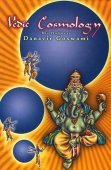Revolution: 1 definition
Introduction:
Revolution means something in Hinduism, Sanskrit. If you want to know the exact meaning, history, etymology or English translation of this term then check out the descriptions on this page. Add your comment or reference to a book if you want to contribute to this summary article.
In Hinduism
Natyashastra (theatrics and dramaturgy)
Source: Shodhganga: Literary estimate of mudraraksasaRevolutions (both Political and Social) should be avoided on a stage (where a dramatic play is performed).—A Nāṭaka should contain pañcasandhis which indicate five successive stages of the drama. This criterion also is present in the Mudrārākṣasa. [...] In the Sāhityadarpaṇa, Viśvanātha gives a list of certain actions which should not be presented on the stage. These are [e.g., revolution (both political and social) ==] [...].

Natyashastra (नाट्यशास्त्र, nāṭyaśāstra) refers to both the ancient Indian tradition (shastra) of performing arts, (natya—theatrics, drama, dance, music), as well as the name of a Sanskrit work dealing with these subjects. It also teaches the rules for composing Dramatic plays (nataka), construction and performance of Theater, and Poetic works (kavya).
See also (Relevant definitions)
Full-text (+158): Parivarta, Rituparyaya, Kalacakra, Kranti, Bhagana, Paryasana, Nakshatrapradakshina, Bhabhrama, Parikranti, Valana, Arkshavarsha, Avritti, Dyujya, Parivartana, Bhranti, Bhramaṇa, Parivritti, Rituparyyaya, Kramti, Inakalaba.
Relevant text
Search found 111 books and stories containing Revolution; (plurals include: Revolutions). You can also click to the full overview containing English textual excerpts. Below are direct links for the most relevant articles:
The Elections and After < [April - June 1977]
“Brooklyn Bridge”: A Russian Homage to America < [July – September, 1981]
The Agony and the Ecstasy < [January – March, 1978]
Brihat Samhita (by N. Chidambaram Iyer)
Appendix 1 - Calculations regarding Śaka and Jupiter (Bṛhaspati)
Philosophy of language in the Five Nikayas (by K.T.S. Sarao)
4. From Behaviourism to Cognitivism < [Chapter 5 - Language and Thought]
6. Sammādiṭṭhi and Language Comprehension < [Chapter 4 - Philosophy of Language in the Five Nikāyas]
The Tattvasangraha [with commentary] (by Ganganatha Jha)
Verse 3368-3370 < [Chapter 26 - Examination of the ‘Person of Super-normal Vision’]
Bhagavatpadabhyudaya by Lakshmana Suri (study) (by Lathika M. P.)
The Renaissance Background < [Chapter 1 - Life and Works of Lakṣmaṇa Sūrin]
Sanskrit and Indian Renaissance < [Chapter 1 - Life and Works of Lakṣmaṇa Sūrin]
Self-Knowledge in Krishnamurti’s Philosophy (by Merry Halam)
9. Conclusion < [Chapter 4 - Freedom and Peace]
7. Inner Transformation < [Chapter 4 - Freedom and Peace]
2. General view of Krishnamurti’s Philosophy < [Chapter 1 - Introduction]
Related products
(+4 more products available)





